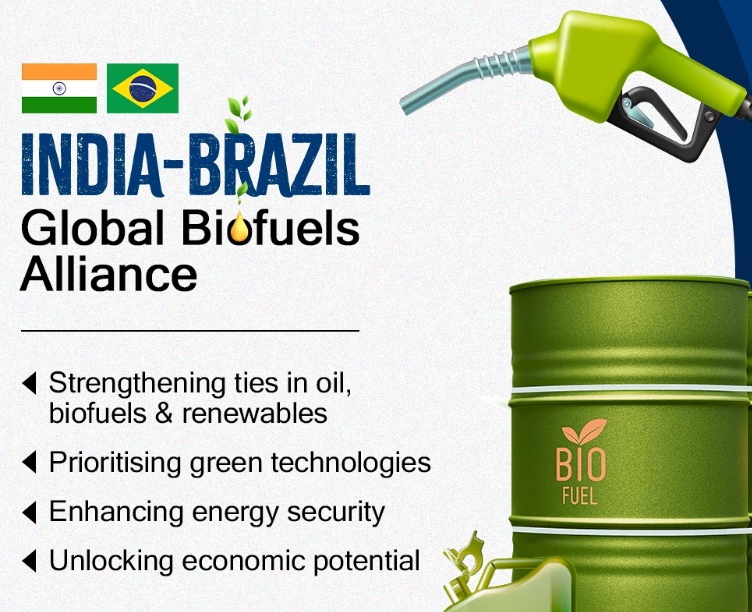PREVIOUS
India-Brazil Biofuel Alliance
August 9 , 2025
12 hrs 0 min
19
0
- India and Brazil are leading a strategic biofuel alliance rooted in the South-South cooperation and clean energy transition.
- The alliance aligns with the shared climate goals and aims to advance green industrialisation and rural development.
- Despite tariff tensions, India, Brazil, and the US continue to cooperate through the Global Biofuels Alliance, launched during India’s G20 presidency in 2023.
- The alliance promotes ethanol blending, sustainable aviation fuel, and flex-fuel technologies to lower greenhouse gas emissions and boost energy security.
- India’s target of 20 percent ethanol blending by 2025 aligns with the Brazil’s advanced sugarcane-based ethanol infrastructure.
- Brazil meets over 30 percent of its vehicle fuel demand through ethanol derived from sugarcane.
- India is integrating feedstocks like rice straw, maize, and used cooking oil into its ethanol production strategy.
- Brazil’s Fuels of the Future law, enacted in October 2024, mandates gradual biodiesel blending increases from 14 percent in 2025 to 20 percent by 2030.
- India’s policy supports 10 percent ethanol blending with plans to expand compressed biogas and sustainable aviation fuel.
- Petrobras of Brazil is investing 600 million US dollars in biodiesel and biomethane projects under its 2025 plan.
- Sustainable aviation fuel can reduce emissions by up to 80 percent, but the global supply is still limited.

Leave a Reply
Your Comment is awaiting moderation.


